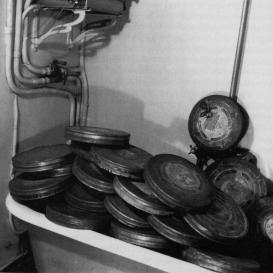This project explored the role of the archive, as an institution, theme, and formal resource, in French film culture in the post-Second World War period. Where Paula Tatla Amad's previous book Counter-Archive told the history of the concept of the film archive before the actual emergence of major state film archives, using Albert Kahn’s Archives de la Planète as an exemplary case study, this project focused on the period after the establishment of national film archives in the 1930s and investigated how access to those archives changed filmmakers ability to tell history through film. Paula Tatla Amad is currently unearthing and studying a corpus of films made from old archival footage, such as Nicole Védrès' Paris 1900, as well as those that incorporate archives or archival-related spaces in their subject matter, such as Toute La Mémoire du Monde, Alain Resnais’ film devoted to France’s Bibliothèque nationale). In addition, the project uncovered a neglected archival imaginary in French cinema (from Resnais' Nuit et Brouillard and Claude Lanzman's Shoah to Assia Djebar’s La Zerda et les chants de l'oubli and Jean-Luc Godard's Histoires du Cinéma). These analyses were situated in relation to diverse archival contexts, including the exponential growth of war-related film archives during the Second World War; the reclamation of colonial history from the perspective of postcolonial subjects; cultural controversies surrounding France's key film depositories (the Cinémathèque Française and the Archives Nationales du Cinéma); and philosophical debates regarding film's memory-making potentials and limitations by figures like André Bazin, Henri Lefebvre, Michel Foucault, Pierre Nora, and Georges Didi-Huberman.

